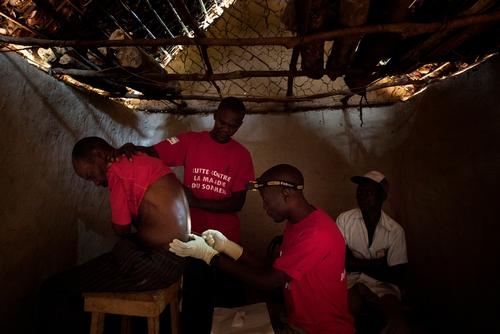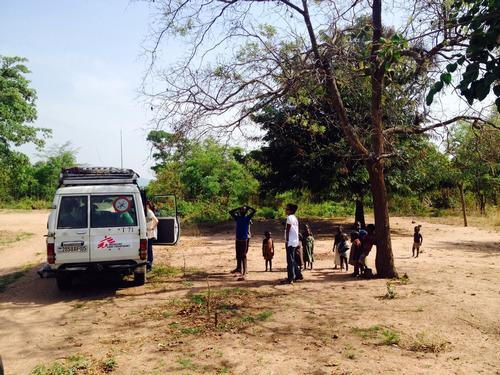Full article available in PLOS: Neglected Tropical Diseases.
Abstract
The area of Walikale in North Kivu, Democratic Republic of Congo, is intensely affected by conflict and population displacement. Médecins-Sans-Frontières (MSF) returned to provide primary healthcare in July 2012. To better understand the impact of the ongoing conflict and displacement on the population, a retrospective mortality survey was conducted in April 2013.
A two-stage randomized cluster survey using 31 clusters of 21 households was conducted. Heads of households provided information on their household make-up, ownership of non-food items (NFIs), access to healthcare and information on deaths and occurrence of self-reported disease in the household during the recall period.
The recall period was of 325 days (July 2012–April 2013). In total, 173 deaths were reported during the recall period. The crude mortality rate (CMR) was of 1.4/10,000 persons/day (CI95%: 1.2–1.7) and the under-five- mortality rate (U5MR) of 1.9/10,000 persons per day (CI95%: 1.3–2.5). The most frequently reported cause of death was fever/malaria 34.1% (CI95%: 25.4–42.9). Thirteen deaths were due to intentional violence.
Over 70% of all households had been displaced at some time during the recall period. Out of households with someone sick in the last two weeks, 63.8% sought health care; the main reason not to seek health care was the lack of money (n = 134, 63.8%, CI95%: 52.2–75.4). Non Food Items (NFI) ownership was low: 69.0% (CI95%: 53.1–79.7) at least one 10 liter jerry can, 30.1% (CI95%: 24.3–36.5) of households with visible soap available and 1.6 bednets per household.
The results from this survey in Walikale clearly illustrate the impact that ongoing conflict and displacement are having on the population in this part of DRC. The gravity of their health status was highlighted by a CMR that was well above the emergency threshold of 1 person/10,000/day and an U5MR that approaches the 2 children/10,000/day threshold for the recall period.





